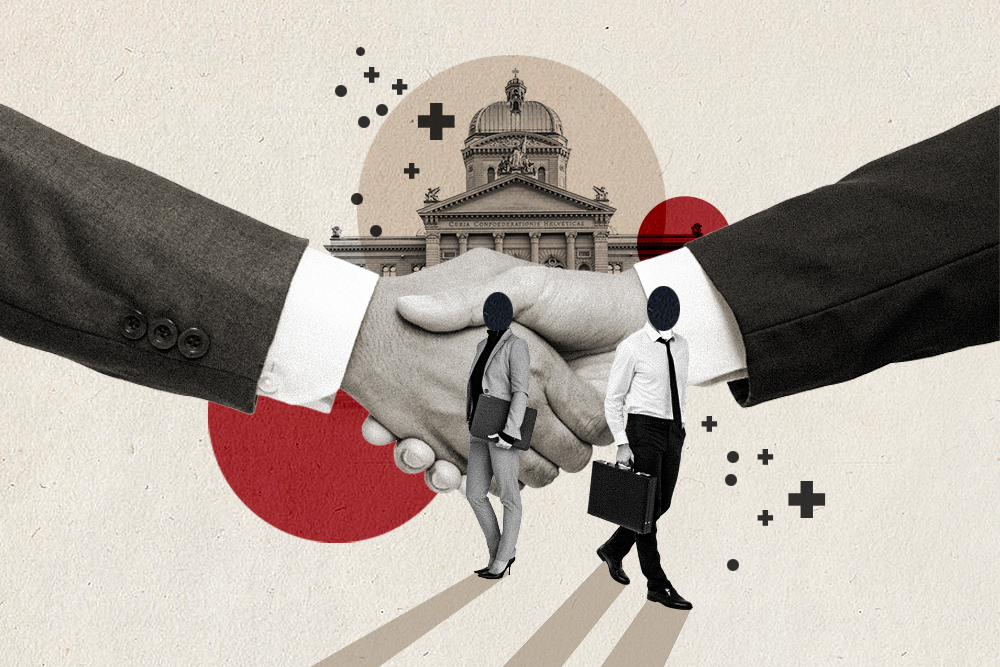New cardinal says Pope has faith in Switzerland

Pope John Paul installed 30 new Roman Catholic cardinals this week including his own theologian, Georges Cottier, who is Swiss.
Cottier, who is only the eighth Swiss to have been made a cardinal, spoke to swissinfo about relations between the Swiss Catholic Church and the Vatican.
A number of controversies have dogged the Catholic Church in Switzerland in recent decades. In the 1970s a schismatic French archbishop, Marcel Lefèbvre, founded a seminary in Fribourg and ordained priests and bishops without Vatican approval.
In the 1990s the church was rocked by the disclosure that a bishop had fathered a child, and disagreements among believers over the conservative stance of the then archbishop of Chur, Wolfgang Haas.
The 82-year-old Cottier, who hails from Geneva, was a professor of philosophy at the universities of Geneva and Fribourg, before leaving for Rome in 1989.
swissinfo: Cardinal Cottier, you are often referred to as the “guardian of the temple” for your role at the Vatican. What does that mean?
Cardinal Cottier: I think that’s because I have to re-read any texts that are prepared for the Holy Father, to check that the doctrine is clear and that there aren’t any ambiguities.
We have writers from many different backgrounds, and we need someone to oversee the work and bring it all into line with Catholic doctrine.
swissinfo: Your appointment means that Switzerland now has three cardinals. That’s a lot for a small country – and a country with a strong Protestant tradition. Isn’t there a danger of imbalance?
C.C.: I hope not. Ordaining cardinals is a sign of great confidence by the Holy Father in our country. I’m sure that our Protestant brothers understand the structure of our church and that our having three cardinals won’t pose a problem.
I’ve received many messages of congratulations from Protestant friends, and those have touched me deeply.
swissinfo: The Swiss Catholic Church has had some difficult times over the past few years. How do you view these delicate issues?
C.C.: The Ecône episode was perceived as an external affair, as Monsignor Lefèbvre and most of his adherents were French.
As for Monsignor Haas, that controversy was over one individual. Much thought was given to the Haas affair in Rome, because if a bishop gives in to protests it creates a precedent.
Finally, the affair surrounding Bishop Vogel of Basel was a case of human weakness, and not the first in the history of the church. And we must show mercy when these lapses occur and pray for everyone, even bishops and priests.
swissinfo: There are some Swiss who resent the centralised, hierarchical structure of the Vatican and who say the Catholic Church is not “democratic”. How do you see this problem?
C.C.: The church is by its very nature hierarchical. And many people are prejudiced against it. For instance, there is a tendency to exaggerate the centralisation of the church. I’ve been at the Vatican 14 years, and I can confirm that there are plenty of meetings and commissions.
What’s more, the Pope takes his decisions after speaking to various people, not all of whom share his opinions or his outlook.
swissinfo: As the Pope’s theologian, you’ve examined some of his most important documents. Is there a thread that runs through all of them?
C.C.: Of course, because irrespective of the themes he addresses, the Pope is always preoccupied with the faith of Christian people.
Specifically, this pontificate, like that of Pope Paul VI, is marked by a clear wish to apply the teachings of the Second Vatican Council.
Also, the Holy Father pays a lot of attention to the problems in our society. He has made considerable efforts on behalf of the family and peace.
His interest in personal devotion, in pilgrimages, and in the great traditions of prayer show that he wants a church that is closer to the people. That is a new style.
swissinfo: How do you think Pope John Paul II will be remembered?
C.C.: As a man of contrasts; as someone who in the early days was strong and a mediator, and who is now very infirm and ill. It’s an image of the suffering Christ, as he experiences the mystery of the Cross.
Our society tries to ignore suffering, infirmity and death. A man who reminds us that age, handicap and illness exist does a great service to society. That is a strong image and one which will endure.
swissinfo-interview: Paolo Bertossa und Mariano Masserini (translation: Vanessa Mock)
Georges Marie Cottier is 81 years old and comes from Geneva.
He was professor of philosophy at two Swiss universities before moving to the Vatican.
Cottier has been Pope John Paul’s personal theologian for 14 years.
He is only the eighth Swiss to be elevated to the rank of cardinal.
Because of his age he will not be entitled to vote for the Pope’s successor.

In compliance with the JTI standards
More: SWI swissinfo.ch certified by the Journalism Trust Initiative









You can find an overview of ongoing debates with our journalists here . Please join us!
If you want to start a conversation about a topic raised in this article or want to report factual errors, email us at english@swissinfo.ch.